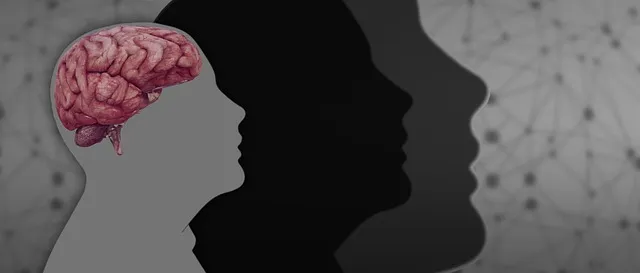The Arvada Kaiser Permanente Mental Health Center is a leading provider of Crisis Intervention Team (CIT) training, offering specialized support for severe emotional crises. Their comprehensive programs combine theoretical knowledge with practical skills, focusing on suicide prevention, trauma response, and acute psychotic episodes. Through immersive simulations, peer mentoring, and ongoing support networks, CIT members ensure patient safety and promote long-term mental well-being. These innovative techniques empower healthcare professionals to de-escalate high-risk situations while fostering community resilience and cultural sensitivity, enhancing overall supportive environments like Arvada Kaiser Permanente.
In today’s challenging landscape, effective crisis intervention is paramount in mental health care. Organizations like the Arvada Kaiser Permanente Mental Health Center are paving the way with innovative training programs. This article explores the crucial role of Crisis Intervention Teams (CITs), focusing on the successful model at the Arvada Kaiser Permanente center. We’ll delve into essential training components, practical strategies, and the far-reaching impact of certified CITs on building resilient communities, emphasizing real-world applications.
- Understanding Crisis Intervention Teams: A Vital Role in Mental Health Care
- The Arvada Kaiser Permanente Mental Health Center: A Model for Training Programs
- Essential Components of Effective Crisis Intervention Training
- Strategies and Techniques for Real-World Application
- Building Resilient Communities: The Impact of Certified Crisis Interventors
Understanding Crisis Intervention Teams: A Vital Role in Mental Health Care

Crisis Intervention Teams (CITs) play a vital role in mental health care, especially within healthcare centers like Arvada Kaiser Permanente. These specialized teams are designed to provide immediate and effective support to individuals experiencing severe emotional crises. With the increasing demand for mental health services, CIT training programs have become essential in equipping professionals with the skills to manage high-risk situations.
The primary focus of these teams is to de-escalate potentially dangerous situations while ensuring patient safety and delivering Anxiety Relief strategies. Through comprehensive training, including Risk Assessment techniques, members learn to recognize warning signs and develop resilience-building mechanisms. This proactive approach not only aids in managing acute crises but also contributes to long-term mental well-being for patients, fostering a more supportive and responsive healthcare environment at Arvada Kaiser Permanente and similar institutions.
The Arvada Kaiser Permanente Mental Health Center: A Model for Training Programs

The Arvada Kaiser Permanente Mental Health Center stands as a beacon of excellence in crisis intervention training. Their comprehensive programs offer a unique blend of theoretical knowledge and practical skills, preparing mental health professionals for a wide range of challenging situations. By integrating evidence-based practices and innovative teaching methods, this center ensures that participants gain the confidence and expertise needed to effectively support individuals facing mental health crises.
Focusing on both individual growth and community resilience, their training extends beyond traditional workshops. It involves immersive simulations, peer mentoring, and ongoing support networks. This holistic approach not only enhances the Risk Management Planning for Mental Health Professionals but also contributes to the development of robust Trauma Support Services. Moreover, the center’s influence extends beyond its walls through the Public Awareness Campaigns Development, fostering a more informed and supportive society for mental health initiatives.
Essential Components of Effective Crisis Intervention Training

Effective crisis intervention training programs are multifaceted and crucial for teams at Arvada Kaiser Permanente mental health center to handle a variety of high-stress situations. Firstly, they should include comprehensive education on various mental health crises, such as suicide prevention, trauma response, and acute psychotic episodes. This knowledge base equips participants with the skills to recognize warning signs and assess risks accurately.
Secondly, practical, hands-on simulations are vital. These allow healthcare providers to practice crisis de-escalation techniques, safe planning strategies, and communication skills in a controlled environment. Additionally, integrating burnout prevention strategies for healthcare providers is essential to ensure team members can manage their own well-being while supporting others. Public awareness campaigns development and coping skills development should also be incorporated, empowering participants with resources to promote mental health literacy both within the workplace and the broader community.
Strategies and Techniques for Real-World Application

At the Arvada Kaiser Permanente mental health center, crisis intervention team training programs emphasize practical strategies and techniques designed for real-world application. These programs equip teams with the knowledge to assess and de-escalate high-risk situations effectively. By blending evidence-based practices with innovative approaches, participants learn to provide immediate Trauma Support Services while fostering resilience in themselves and those they serve.
Incorporating Self-Care Practices and Coping Skills Development is a cornerstone of these training initiatives. Teams are taught the importance of maintaining their own mental health as a prerequisite for supporting others. Through role-playing scenarios, group discussions, and interactive workshops, participants gain tools to navigate complex emotional landscapes, ultimately enhancing their ability to offer compassionate and effective care within the dynamic environment of a crisis intervention setting.
Building Resilient Communities: The Impact of Certified Crisis Interventors

Building resilient communities is a key aspect of crisis intervention team (CIT) training programs. Certified CIT members play a vital role in enhancing mental healthcare services, especially in areas like the Arvada Kaiser Permanente mental health center. Their presence ensures that individuals experiencing crises receive prompt and culturally sensitive support. This approach not only improves immediate outcomes but also fosters long-term recovery by addressing underlying issues.
The impact of these trained intervenors extends beyond individual cases. They contribute to developing a supportive network within communities, empowering residents with coping skills and trauma support services. By integrating Cultural Sensitivity in Mental Healthcare Practice, CIT members bridge the gap between diverse populations and mental health resources, making care more accessible and effective. This holistic approach ultimately strengthens community resilience and promotes better overall mental well-being.
Crisis intervention team training programs, such as those offered by the Arvada Kaiser Permanente Mental Health Center, play a pivotal role in equipping professionals with the skills to navigate and de-escalate crisis situations. By focusing on evidence-based strategies and fostering community resilience, these programs empower individuals to become certified crisis intervenors, ultimately enhancing mental health care accessibility and outcomes. Incorporating real-world application techniques ensures that participants are prepared to handle diverse scenarios effectively, contributing to safer and more supportive communities.






